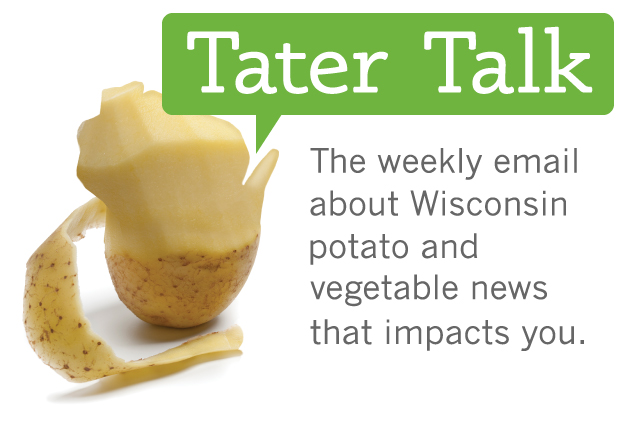Regulatory Confusion
Taints Wisconsin’s High Capacity Wells
by Brian Sikma, Media Trackers1
Regulatory confusion resulting from state Supreme Court decisions and the Department of Natural Resources is creating headaches for users and owners of high capacity wells in Wisconsin.
Across the state farmers, employers and municipalities use high capacity wells to provide water for crops, animals, products and people, and the DNR is tasked with issuing permits for new high capacity wells if the proposed wells meet statutorily defined specifications.
But, the process is broken.
Thanks to a 2011 Supreme Court decision that vaguely gave the DNR undefined powers to regulate high capacity wells beyond what is codified in statute and administrative code, the well permitting process is so tainted that a backlog has built up as applicants wait to find out whether or not they can drill a new well or repair an existing well.
In the last 36 weeks, according to the DNR,2 119 applications for high capacity wells have been filed.
The DNR would not tell Media Trackers how many of those applications have been definitively resolved, but an industry insider who asked not to be named due to the sensitive nature of the issue said the DNR has privately indicated that up to 170 high capacity well permits remain unresolved.
The astonishing backlog and resulting uncertainty, “represent at least a quarter of a billion dollars in direct capital investments in Wisconsin that are on hold,” the industry expert said.
According to the Wisconsin Administrative Code,3 a high capacity well is any well that pumps “70 or more gallons per minute.”
After receiving a $500 payment and an application, the DNR must reach a final determination on the application within 65 days, according to NR 820,4 unless the agency finds a reason to request more information about the well to inform its decision-making process.
In 2011, the Wisconsin Supreme Court created uncertainty in the process by suggesting that the DNR could add other considerations to the determination process, considerations not found in legislatively enacted state law or state administrative code.
The case was called Lake Beulah Mgmt. Dist. v. DNR, and in it, the Court said the DNR could use the so-called “public trust” doctrine to add further regulation to the high capacity well permitting process.
According to AgriView, 5 an agriculture industry trade news publication, “the Court said that despite Wisconsin’s groundwater statutes and existing permitting program for high capacity wells, the DNR has the general duty and broad authority to regulate high capacity wells beyond the scope of those regulations – a decision that has created much uncertainty for Wisconsin farmers seeking high capacity well approvals.”
But, what the Court did flies in the face of 2011 Wisconsin Act 21,6 a regulatory reform measure signed into law by Gov.
Scott Walker (R). That law mandates that, “No agency may implement or enforce any standard, requirement, or threshold, including as a term or condition of any license issued by the agency, unless that standard, requirement, or threshold is explicitly required or explicitly permitted by statute or by a rule.”
The Great Lakes Legal Foundation, a pro-economic growth, nonprofit legal group,7 argues in a recent white paper that in addition to making the wrong decision in Lake Beulah, the Supreme Court subsequently reversed what the DNR interpreted as a broad grant of power in that case.
According to the white paper: “[A] recent Wisconsin Supreme Court decision (Rock-Koshkonong Lake Dist. Mgmt. v. DNR) refutes DNR’s position that the public trust doctrine provides the broad authority DNR asserts it has. In Rock-Koshkonong, the Court rejected an argument by the DNR that the public trust doctrine applies to water resources other than navigable surface waters.”
While a well of any sort, including a high capacity well, does not explicitly involve navigable surface waters, state administrative code does give the DNR power to assess whether or not a high capacity well should go in near certain bodies of surface water or springs.
The public trust doctrine itself – which the Supreme Court and the DNR initially felt gave the agency broad powers to further regulate high capacity wells – itself only applies to surface waters, as the Court said in the Rock-Koshkonong case.
The confusion from the two Supreme Court cases and the uncertainty of the DNR’s regulatory power and process for high capacity wells is impacting job creators and Wisconsin industry.
In May, the Wisconsin Manufacturers and Commerce highlighted the case of Milk Source,8 a Wisconsin-based dairy that recently invested $80 million in a different state because its high capacity well permit was caught in the murky regulatory environment and ensuing uncertainty.
Lawmakers in Madison have debated reforming the well permitting process, but so far, all attempts to bring clarity to the confusion have failed.
For further information, please read “Great Lakes Legal Foundation White Paper – DNR Is Violating Act 21 by Imposing Unlawful Conditions.” 9
1 http://mediatrackers.org/author/brian-sikma EDITOR’S NOTE: Media Trackers is dedicated to media accountability, government transparency and quality fact-based journalism. Their site examines stories published in the mainstream media, explores claims made by some of the more partisan political groups and provides the facts on the issues, people and elections that matter.
2 http://dnr.wi.gov/topic/wells/highCapWellAppsRecent.html
3 https://docs.legis.wisconsin.gov/code/admin_code/nr/800/812/I/07/53
4 http://docs.legis.wisconsin.gov/code/admin_code/nr/800/820.pdf
6 http://docs.legis.wisconsin.gov/2011/related/acts/21.pdf
7 http://greatlakeslegalfoundation.org
8 https://www.youtube.com/watch?v=GkT9RUiPpg&feature=youtube

